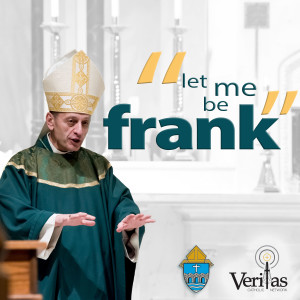1 Now about food sacrificed to idols: we know that ‘We all possess knowledge.’ But knowledge puffs up while love builds up. 2 Those who think they know something do not yet know as they ought to know. 3 But whoever loves God is known by God.
4 So then, about eating food sacrificed to idols: we know that ‘An idol is nothing at all in the world’ and that ‘There is no God but one.’ 5 For even if there are so-called gods, whether in heaven or on earth (as indeed there are many ‘gods’ and many ‘lords’), 6 yet for us there is but one God, the Father, from whom all things came and for whom we live; and there is but one Lord, Jesus Christ, through whom all things came and through whom we live.
7 But not everyone possesses this knowledge. Some people are still so accustomed to idols that when they eat sacrificial food they think of it as having been sacrificed to a god, and since their conscience is weak, it is defiled. 8 But food does not bring us near to God; we are no worse if we do not eat, and no better if we do.
9 Be careful, however, that the exercise of your rights does not become a stumbling-block to the weak. 10 For if someone with a weak conscience sees you, with all your knowledge, eating in an idol’s temple, won’t that person be emboldened to eat what is sacrificed to idols? 11 So this weak brother or sister, for whom Christ died, is destroyed by your knowledge. 12 When you sin against them in this way and wound their weak conscience, you sin against Christ. 13 Therefore, if what I eat causes my brother or sister to fall into sin, I will never eat meat again, so that I will not cause them to fall. (1 Corinthians 8)
Ancient Corinth was one of the largest, wealthiest and therefore most important cities of the ancient world. It had a large mixed population of Greeks, Romans and Jews. The streets of Corinth were lined with temples to all manner of gods. Not only Greek gods but also because Greece was now under the Roman empire, temples paying homage to Roman gods. This of course included those giving homage and worship to the Roman Emperor, who at the time this letter was written, was probably the Emperor Nero. More than that, some of the Greek gods were merged with Roman gods, in order to make new gods and therefore more temples were constructed.
In these temples, sacrifices were made to appease these gods and were acts of worship to and of them. For if the gods were not appeased then it was thought that all manner of things may happen to a person, internally and externally, for the gods would be angry and send their demons and spirits to inflict all manner of ill on a person. The meat from these sacrifices was then, in part, given to be eaten by the priests conducting the sacrifice, and the rest sold to the general public for consumption.
We see therefore, from a Christian perspective, Corinth was a city deeply immersed in idolatry and immorality. What of the Church there in the midst of such a place? Paul had helped start the Church about 6 years ago. You can read about that in Acts 18.
More Episodes
Jesus - A Glimpse Of God Part 31
 2023-11-10
2023-11-10
Jesus - A Glimpse Of God Part 30
 2023-11-09
2023-11-09
Jesus - A Glimpse Of God Part 29
 2023-11-08
2023-11-08
Psalm On Demand - Psalm 67
 2023-11-07
2023-11-07
Jesus - A Glimpse Of God Part 28
 2023-11-07
2023-11-07
Psalm On Demand - Psalm 76
 2023-11-06
2023-11-06
Jesus - A Glimpse Of God Part 27
 2023-11-06
2023-11-06
Psalm On Demand - Psalm 115
 2023-11-05
2023-11-05
Jesus - A Glimpse Of God Part 26
 2023-11-05
2023-11-05
Psalm On Demand - Psalm 140
 2023-11-04
2023-11-04
Jesus - A Glimpse Of God Part 25
 2023-11-04
2023-11-04
Psalm On Demand - Psalm 124
 2023-11-03
2023-11-03
Jesus - A Glimpse Of God Part 24
 2023-11-03
2023-11-03
Psalm On Demand - Psalm 2
 2023-11-02
2023-11-02
Jesus - A Glimpse Of God Part 23
 2023-11-02
2023-11-02
Jesus Who - Pulp Theology 09
 2023-11-01
2023-11-01
Jesus - A Glimpse Of God Part 22
 2023-11-01
2023-11-01
Psalm On Demand - Psalms 31 to 35
 2023-10-31
2023-10-31
Jesus - A Glimpse Of God Part 21
 2023-10-31
2023-10-31
Psalm On Demand - Psalms 26 to 30
 2023-10-30
2023-10-30
Get your brand heard on this podcast
Join Podbean Ads Marketplace and connect with engaged listeners.
Advertise Today
Create your
podcast in
minutes
- Full-featured podcast site
- Unlimited storage and bandwidth
- Comprehensive podcast stats
- Distribute to Apple Podcasts, Spotify, and more
- Make money with your podcast
It is Free
You may also like

Life After Ministry


Cast The Word


Let Me Be Frank | Bishop Frank Caggiano’s Podcast | Diocese of Bridgeport, CT


The Bible Recap


The Bible in a Year (with Fr. Mike Schmitz)


- Privacy Policy
- Cookie Policy
- Terms of Use
- Consent Preferences
- Copyright © 2015-2024 Podbean.com




 iOS
iOS Android
Android